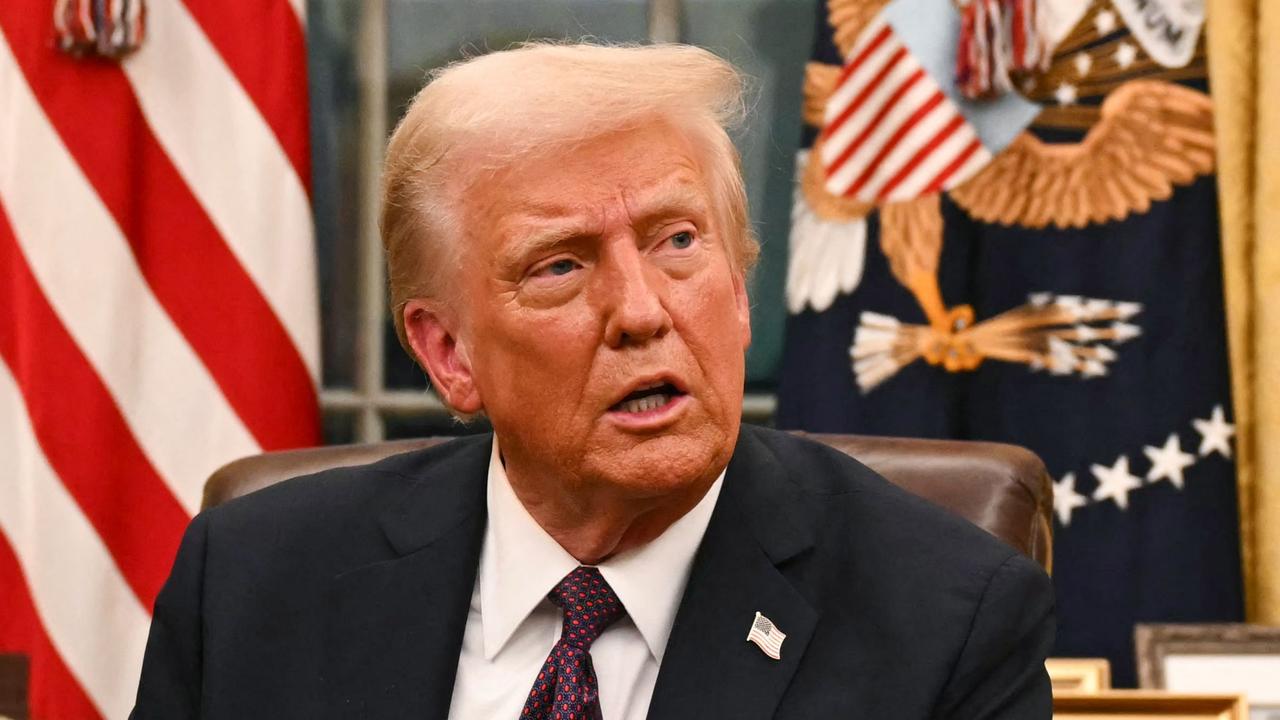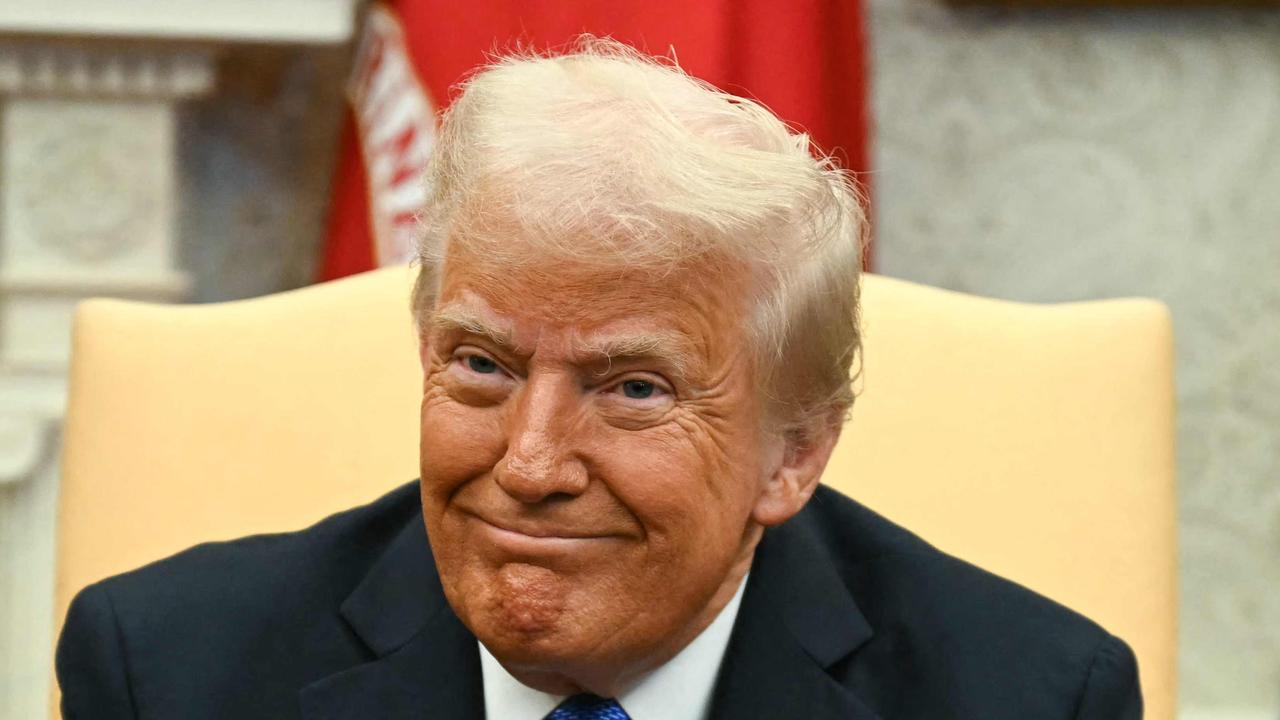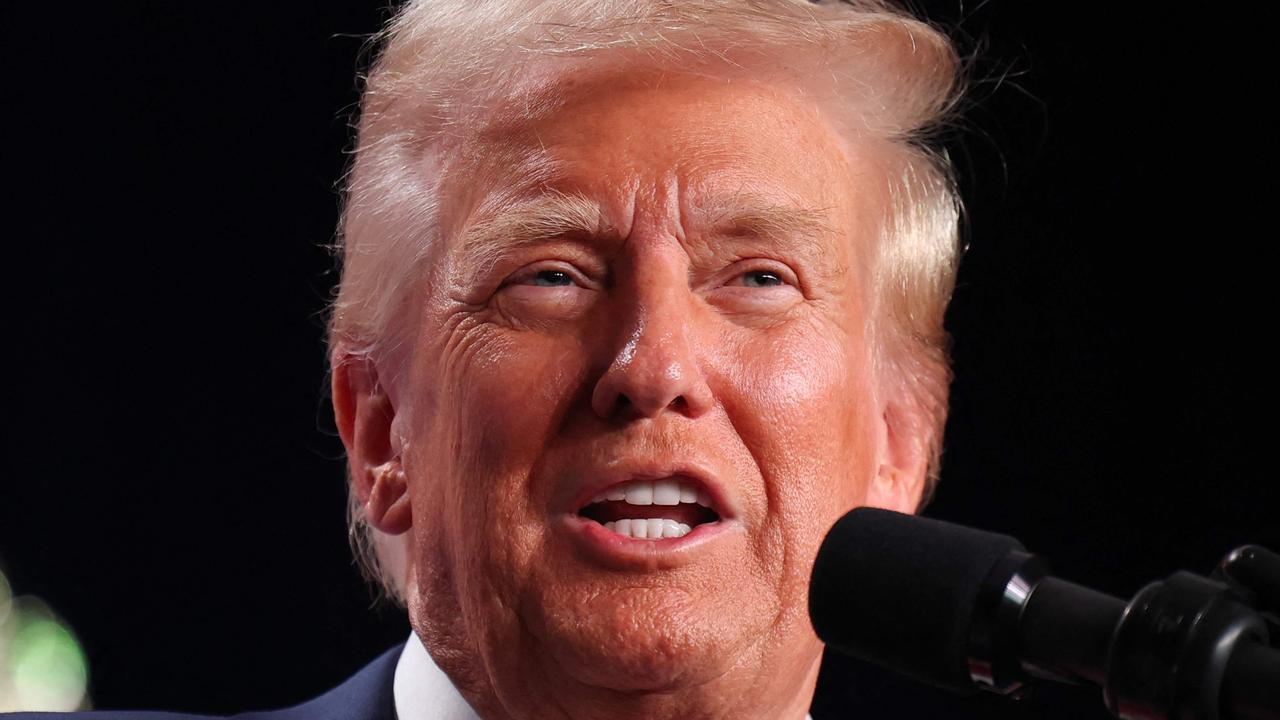Scott Morrison takes aim at ‘coercive’ globalism, doubles down on China in 2019 Lowy Lecture
At a glitzy event in Sydney last night, the PM rose to speak in front of Australia’s brightest minds. He had a message for them, and the world.
One striking word popped up repeatedly during Scott Morrison’s major foreign policy address last night.
That word was “globalism”.
The Prime Minister was criticised during his recent trip to the United States for skipping a United Nations summit on climate change, which was being held in New York.
He alluded to that controversy in his speech at Sydney’s Town Hall on Thursday night, delivering a quiet but scathing critique of “international institutions” that seek to “impose” their views on sovereign nations.
“Pragmatic international engagement, based on the co-operation of sovereign nation states, is being challenged by a new variant of globalism that seeks to elevate global institutions above the authority of nation states to direct national policies,” said the Prime Minister.
He described it as “an era of insiders and outsiders”, in which “elite opinion and attitudes have often become disconnected from the mainstream of their societies”.
“Australia does and must always seek to have a responsible and participative international agency in addressing global issues. This is positive and practical globalism. Our interests are not served by isolationism and protectionism,” he said.
“But it also does not serve our national interests when international institutions demand conformity rather than independent co-operation on global issues.
“The world works best when the character and distinctiveness of independent nations is preserved within a framework of mutual respect. This includes respecting electoral mandates of their constituencies.
“We should avoid any reflex towards a negative globalism that coercively seeks to impose a mandate from an often ill-defined borderless global community. And worse still, an unaccountable internationalist bureaucracy.”
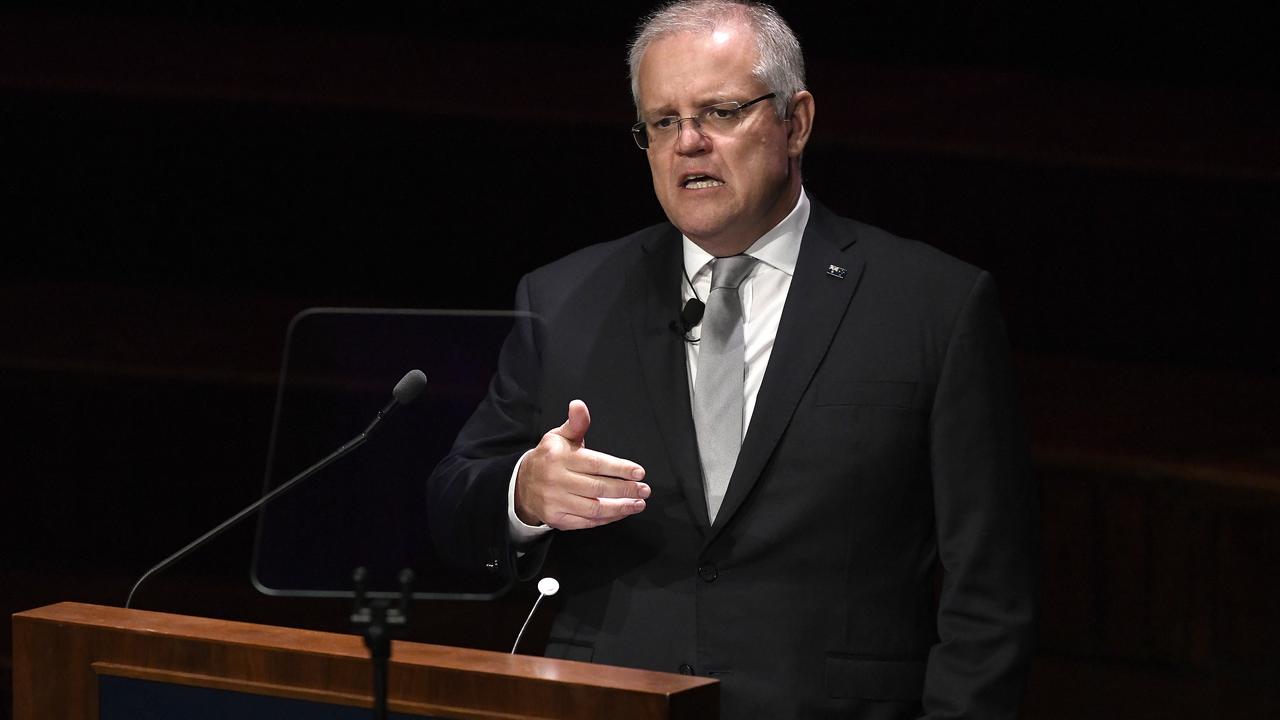
Those are defiant words, reminiscent of the rhetoric one might expect from Brexit advocates in the United Kingdom, or even from US President Donald Trump, who frequently throws around the term “globalist” as an insult.
In fact, Mr Trump is arguably responsible for popularising the use of “globalism”. Before his election win in 2016, you were far more likely to hear relatively neutral words like “multilateralism” and “internationalism”.
During his speech to the UN last month, Mr Trump claimed globalism had “exerted a religious pall” over some world leaders and caused them to “ignore their own national interests”.
“The future does not belong to globalists. The future belongs to patriots,” he said.
Mr Morrison echoed that argument to an extent, but took care to distinguish between what he called “positive” and “negative” globalism.
“Globalism, in a positive light, it facilitates, aligns and engages, rather than directs and centralises,” he said.
“Only a national government, especially one accountable through the ballot box and the rule of law, can define its national interests. We can never answer to a higher authority than the people of Australia. And under my leadership, Australia’s international engagement will be squarely driven by Australia’s national interests.”
To punctuate his point, Mr Morrison drew inspiration from one of John Howard’s most memorable lines: “We will decide our interests and the circumstances in which we seek to pursue them.”
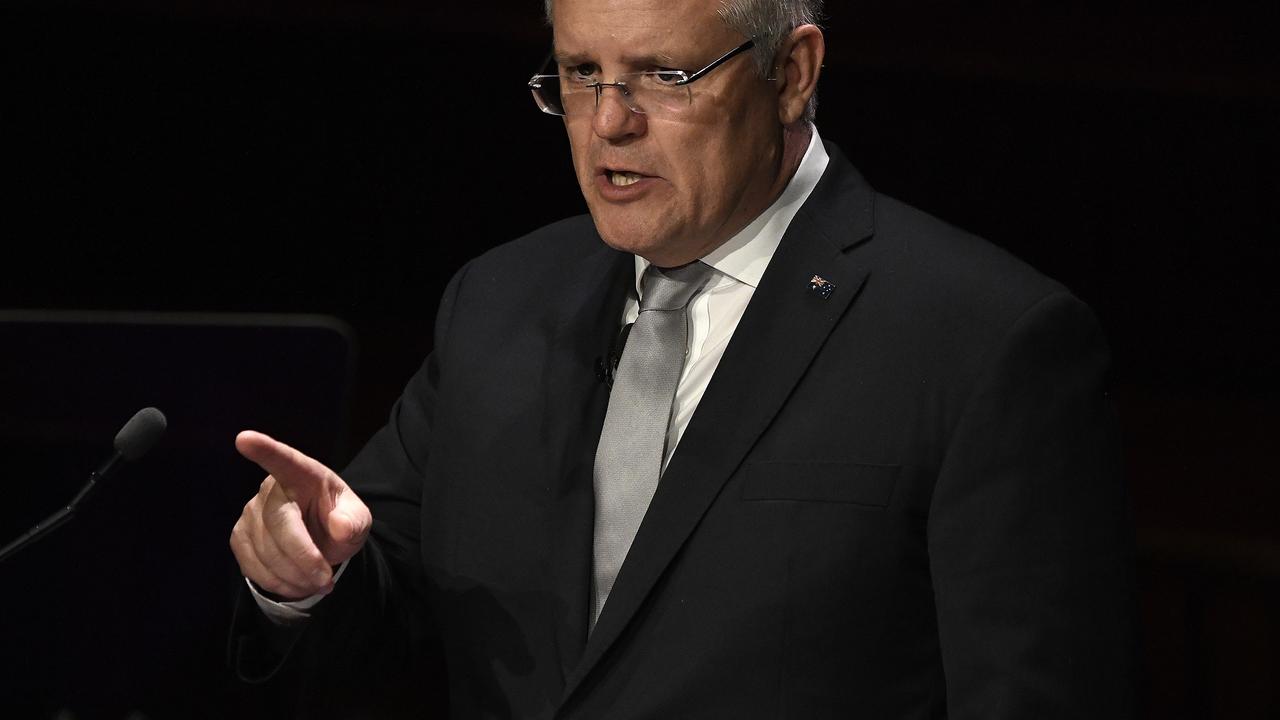
Mr Morrison was on stage to deliver the Lowy Lecture — the annual flagship event of the Lowy Institute, a foreign affairs think tank.
The audience before him included some of Australia’s brightest minds, dressed up for the prestigious occasion.
Listening intently among them was Mr Howard, who delivered the first ever Lowy Lecture back in 2005. Mr Morrison became the third Australian prime minister, after Mr Howard and Malcolm Turnbull, to headline the prestigious event.
Other prominent past speakers have included German Chancellor Angela Merkel, British Prime Minister Boris Johnson, former CIA director David Petraeus and News Corp Chairman Rupert Murdoch.
In a speech that largely focused on Australia’s place in the world, Mr Morrison also doubled down on his call for China to shoulder greater responsibility on the international stage, in line with its growing power as the world’s second largest economy.
He further detailed his argument, first made in Chicago last month, that China should no longer be considered a “developing” country under World Trade Organisation (WTO) rules.
RELATED: Morrison takes aim at China’s ‘developing’ country status
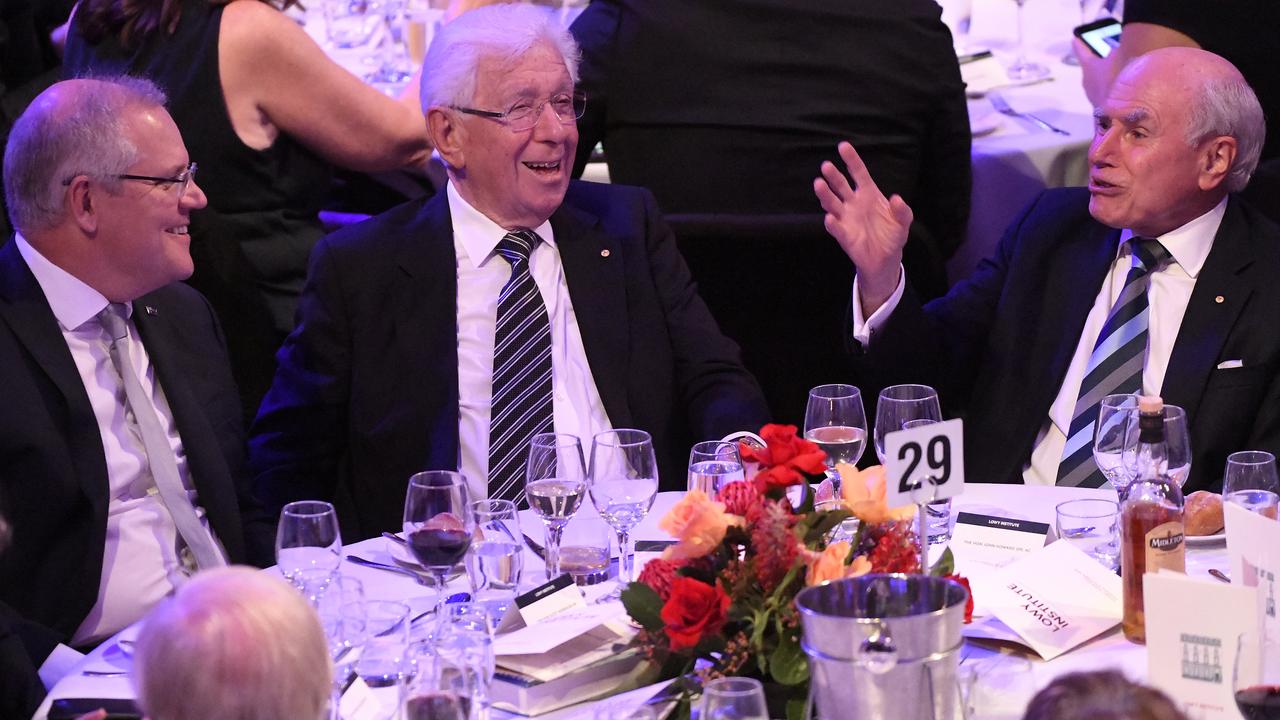
“China is a global power making significant investments in military capability as a result of its extraordinary economic success,” Mr Morrison said.
“It is the major buyer of resources globally. It is having a profound impact on the regional balance of power. It’s now the world’s second largest economy, accounting for 16 per cent of world GDP in 2018. The world’s largest goods exporter since 2009, and the world’s largest trading nation since 2013. The world’s largest manufacturer. The world’s largest banking sector, the world’s second largest stock market and the world’s third largest bond market. Not bad for a developing country! And the world’s largest holder of foreign reserves.”
He acknowledged Australia had benefited from China’s economic rise — just as China had benefited from our reliable supply of energy, resources, agricultural goods and services.
“China has in many ways changed the world,” said the Prime Minister.
“So we would expect the terms of its engagement to change too.
“That’s why when we look at negotiating rules of the future of the global economy, for example, we would expect China’s obligations to reflect its greater power status. This is a compliment, not a criticism.
“And that is what I mean when describing China as a newly developed economy.
“The rules and institutions that support global co-operation must reflect the modern world. It can’t be set and forget.”
Think of all that as Mr Morrison’s version of the “with great power comes great responsibility” speech from Spider-Man.
The Prime Minister revealed he had directed the Department of Foreign Affairs and Trade (DFAT) to conduct a “comprehensive audit” of global institutions and rule-making processes, particularly those in which Australia has the greatest stake.
The WTO does not have a framework officially defining which countries are developing and which are already developed. Instead, nations are left to classify themselves as they see fit.
As a self-defined developing country, China receives a range of perks. For example, it gets more time to implement WTO commitments, benefits from procedural advantages in disputes, and gains access to subsidies in certain economic sectors.
This is a sore point for some other countries, particularly the United States. Mr Trump believes the size of the Chinese economy should disqualify it from such special treatment — and it seems he has an eager ally in Mr Morrison.
China, which is a great economic power, is considered a Developing Nation within the World Trade Organization. They therefore get tremendous perks and advantages, especially over the U.S. Does anybody think this is fair. We were badly represented. The WTO is unfair to U.S.
— Donald J. Trump (@realDonaldTrump) April 6, 2018
The Prime Minister solidified his already strong relationship with Mr Trump during a rare state visit to the United States late last month.
He was just the second international leader to receive such an honour — the other being French President Emmanuel Macron — since Mr Trump assumed office in January of 2017, and the first Australian prime minister since Mr Howard in 2006.
RELATED: Scott Morrison addresses phone call with Trump
RELATED: Trump and Morrison share unusually strong rapport
RELATED: Glitz and glamour at Scott Morrison’s state dinner
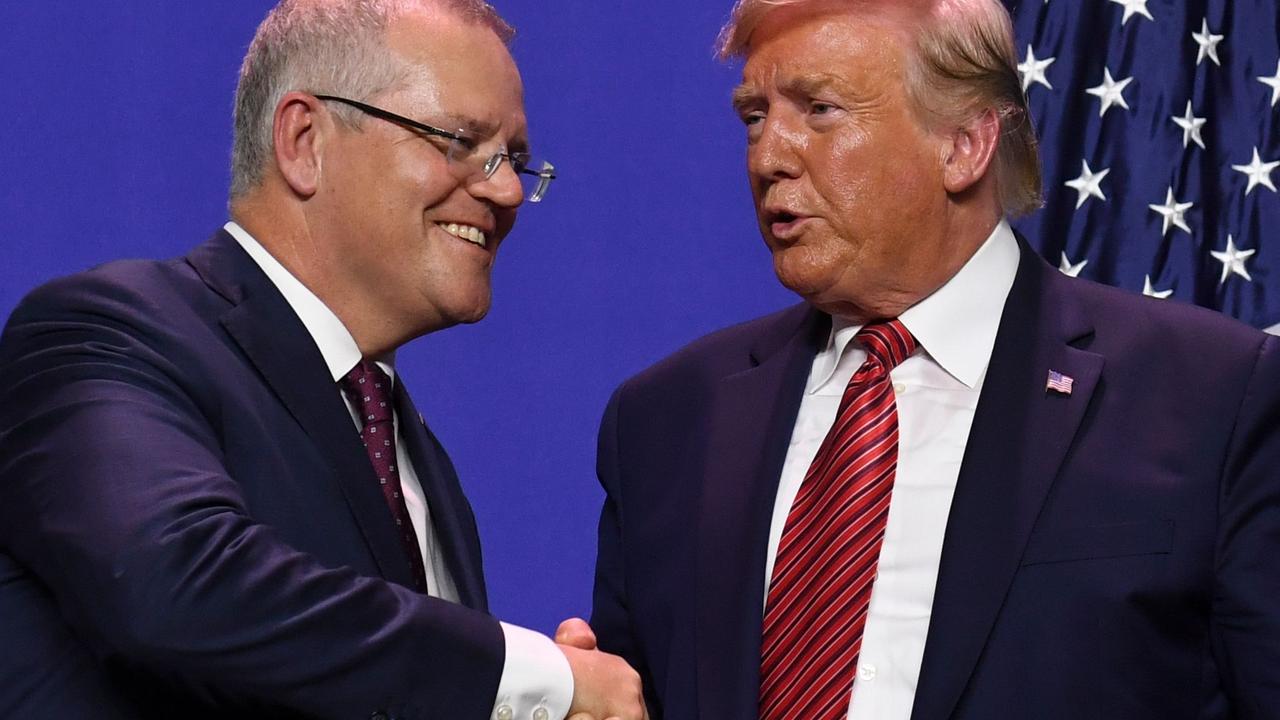
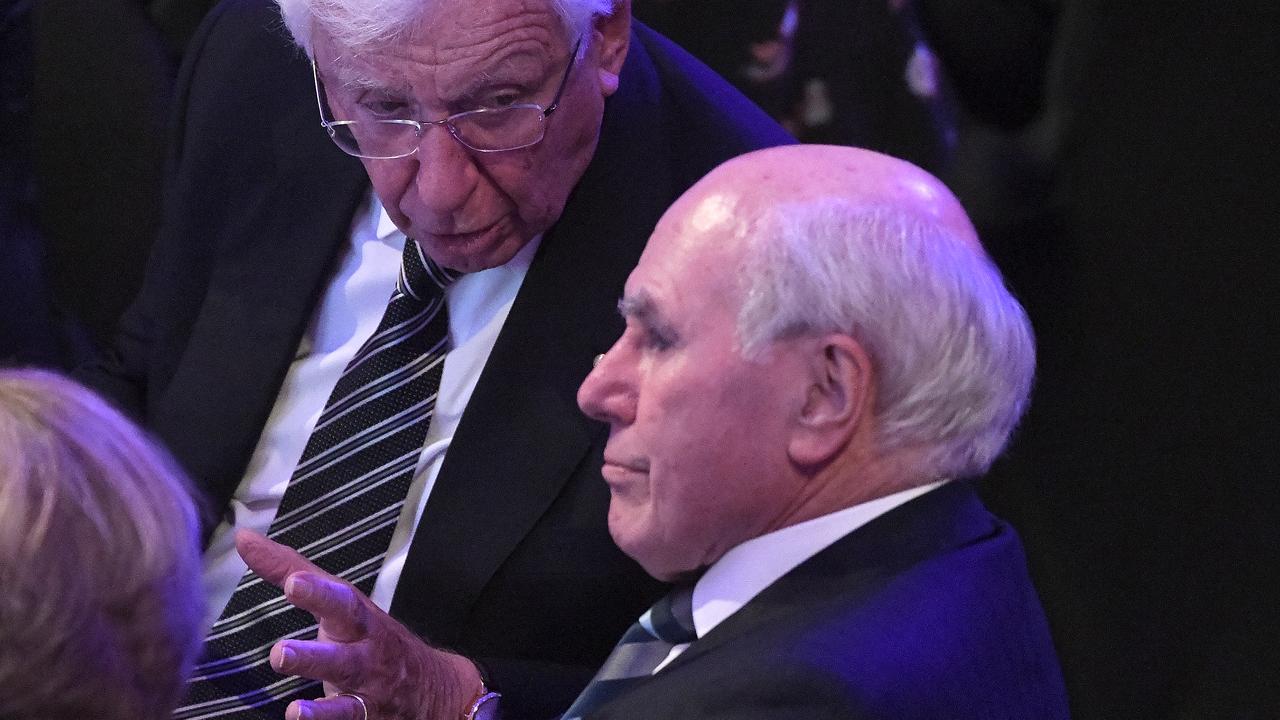
Mr Morrison was perhaps an appropriate choice for the Lowy Lecture, given how much of his early time as Prime Minister has been spent overseas.
Nevertheless, he told the audience at Sydney’s Town Hall that his true interests were domestic.
“Despite my activities of the past year, I am not one who naturally seeks out summits and international platforms. But as Prime Minister, you must always be directed by the demands of the national interest. So much of Australia’s future right now is being shaped by events and relationships well beyond our borders,” Mr Morrison said.
And he will be travelling beyond those borders again soon.
The Prime Minister used his address to confirm he would attend the inauguration of re-elected Indonesian President Joko Widodo later this month. He has also accepted an invitation from Indian Prime Minister Narendra Modi to visit that country in January, and another from Japanese President Shinzo Abe. That trip is slated for sometime early next year.
During a short question and answer session after the speech, Mr Morrison addressed his government’s commitment to Mr Trump to co-operate with a US Justice Department investigation into the origins of the FBI’s Russia probe in 2016.
Former Liberal leader and foreign minister Alexander Downer, of all people, is a central figure in that investigation, having communicated information he learned from Trump adviser George Papadopoulos — that Russia had dirt on Hillary Clinton — back to Canberra.
That information was then handed to US authorities, sparking the Russia investigation.
Mr Downer appears to have simply been doing his job as a diplomat. Some of Mr Trump’s supporters feel his role was more sinister. Mr Papadopoulos himself has accused Mr Downer of being an “FBI spy”.
“Isn’t it inconceivable, the idea that someone like Mr Downer, a former conservative foreign minister, would be in cahoots with the deep state and various allied countries to intervene in the US election? Isn’t it a ridiculous proposition?” asked Michael Fullilove, the Lowy Institute’s Executive Director.
“Alexander’s always been a big lefty. Him and Nick Minchin, big lefties,” Mr Morrison joked, drawing laughter from the crowd.
“I think not.”
Former Liberal senator Nick Minchin was a prominent leader of the Liberal right for many years.
“Look, putting that to one side, the fundamentals of this are pretty straightforward.
“It would be extraordinary of any prime minister to deny what was a very straightforward request.”


